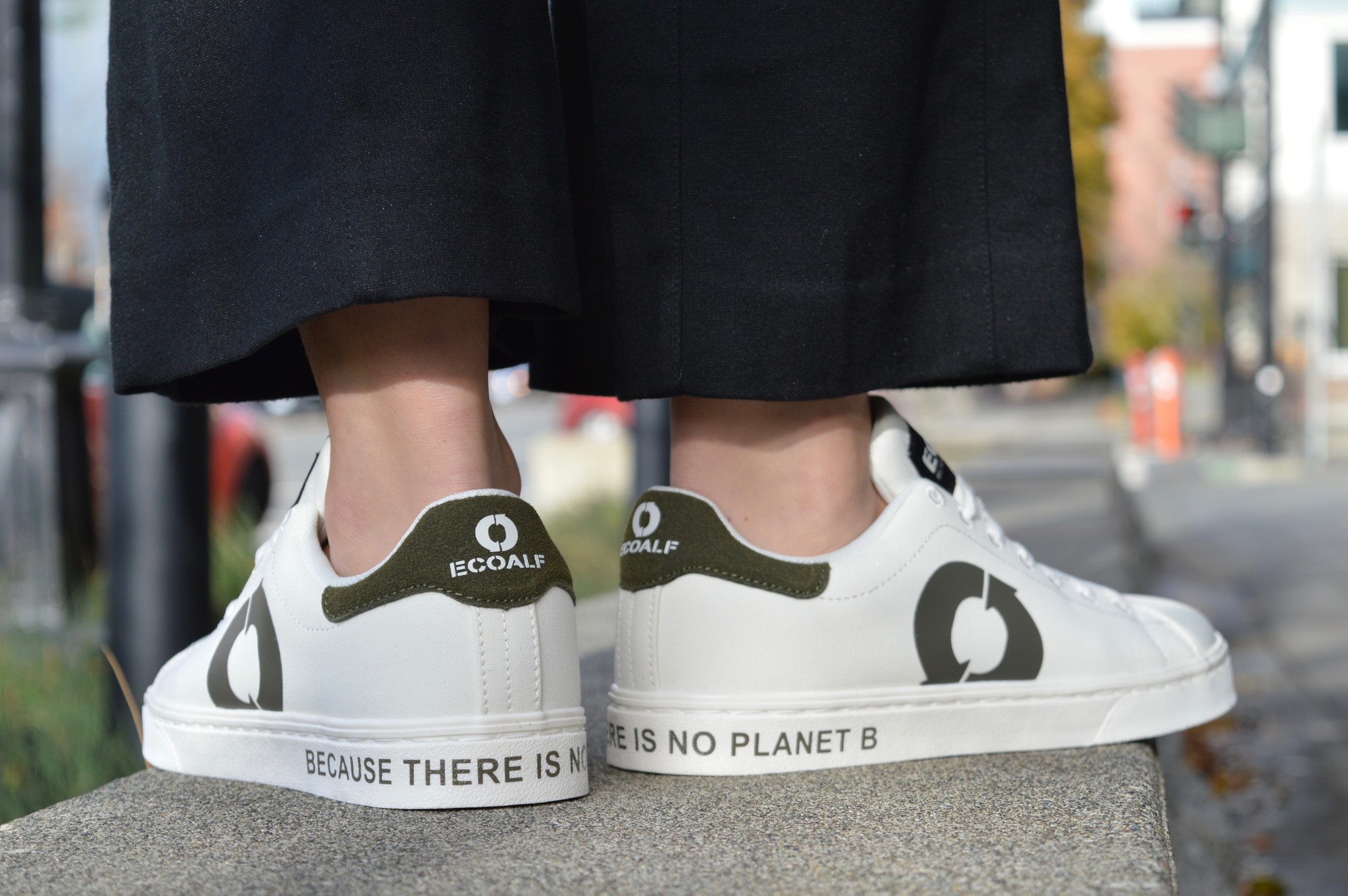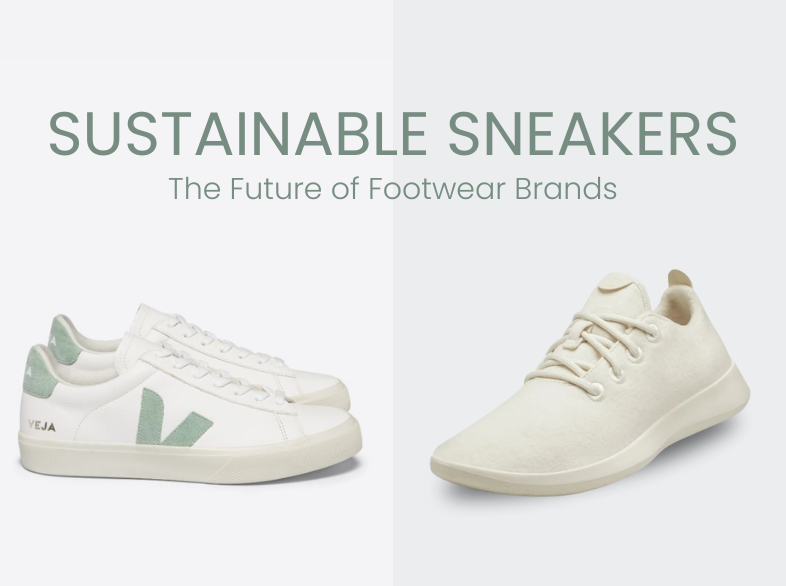The world is changing. People are becoming increasingly conscious of their actions’ impact on the environment, and it’s changing how they make their choices in almost every area of their lives. And that includes footwear. Sneakerheads are becoming more discerning, demanding better-quality products and higher standards of transparency. But another shift in this industry has yet to garner as much attention: the trend toward sustainable production methods.
Sustainable sneakers have been gaining momentum for years, but only recently have these shoes become so popular that even big brands like Adidas are getting on board. In this blog post, we’ll explore what constitutes sustainable sneakers—and why they will be the future of footwear manufacturing.
What are sustainable sneakers?
Sustainable sneakers are those primarily produced using an eco-friendly manufacturing technique that involves recycling or upcycling garbage, ultimately helping protect our environment. They use recycled materials in construction, reducing harmful waste and landfill space. Moreover, less water is used to produce these shoes, and no dangerous chemicals are used.
Reasons why sustainable sneakers are the future of footwear brands
You might be shocked to learn that the fashion industry is one of the top polluters in the world. The global greenhouse gas emissions from the footwear industry alone total 700 million metric tons, or over 1.4%.
Most shoes are produced from plastic and dangerous chemicals, setting the earth up for disaster. The fact that these shoes take 30–40 years to break down is another surprising development.
Today, most companies attempt to provide sustainable shoes, enabling them to show their support for environmental protection. Ecological concerns have also helped the company gain a reputation for corporate responsibility, which has boosted sales and ensured long-term growth. Here are five reasons companies are beginning to prioritize sustainable sneakers in the future.
Reduced water consumption
Our planet is facing a severe water crisis. The United Nations estimates that around 1.8 billion people will reside in water-scarce places by 2025, and two-thirds of the world’s population may experience water stress. And we all know that major international shoe brands consume water in enormous amounts.
According to data from the Sustainable Business Group, just one kilogram of raw cotton, a common shoe material, requires between 10,000 and 20,000 liters of water to grow. Moreover, for every kilogram of fiber, textile dyeing requires 100 to 150 liters of water. Another source says that due to water extraction by nearby cotton farmers, the Aral Sea in Central Asia is currently 10% below its former size.
Shoes made from sustainable materials rely less on crops or manufacturing techniques that require a lot of water. They search for methods to reduce water use and safeguard freshwater reserves for future generations. Therefore, the big footwear giants are moving towards creating sustainable shoes to reduce their water consumption and follow all the international laws and regulations related to water consumption.
Reduced plastic waste
The most apparent benefit of sustainable sneakers for the footwear industry is reducing plastic waste. According to research, 300 million pairs of shoes are discarded annually. Many of these are made of polymers derived from crude oil, which are difficult to biodegrade and have devastating environmental effects.
But eco-friendly footwear reduces the use of plastic. They reduce scrap while utilizing more environmentally friendly and recyclable materials (leftover cuttings from shoe production).
Transparency and sustainability
The Millennial and Gen Z generations are the largest in history, meaning they have tremendous purchasing power. They’re also the most environmentally conscious generation, having grown up with climate change as an issue and being taught to recycle from an early age.
Millennials and Gen Z seek unique, good-quality, sustainable, and transparent products throughout production. They also want to be trendy while wearing shoes that don’t harm the environment or human rights.
The new generation of consumers is no longer content to buy the first pair of shoes that catch their eye. They seek brands that reflect who they are and what they stand for. Therefore, brands are investing more and more in sustainable shoes if they want to be taken seriously in the future.
Competitive advantage
Sustainable sneakers give companies a competitive advantage in today’s market because consumers want them! They want to support businesses that care about more than just profit margins—they want businesses that care about people too.
Adidas and Nike are two companies that are setting the standard for environmentally friendly shoe production by utilizing recycled materials and eco-friendly manufacturing techniques to produce beautiful footwear that benefits the environment.
For instance, Adidas has introduced its “Prime Green” line of sneakers, which is entirely constructed of recycled materials. Natural rubber makes up the sole, while recycled polyester and TPU are combined to create the top. It means that each pair of shoes in the Prime Green line prevents the landfilling of about 50 plastic bottles. This initiative by Adidas earned positive press and appreciation from organizations dedicated to environmental conservation.
Connect with future generations
The future generations are the ones who will be left with a planet once we’re gone. They’re also a critical demographic for companies looking to create long-lasting customer relationships—especially in industries like footwear, where social responsibility is essential during product development.
Sustainable sneakers are a way for companies to connect with future generations by providing them with a sense of comfort and reassurance—knowing that the shoes they’re wearing were made in an environmentally friendly way.

In conclusion, by using environmentally friendly and ethically sourced materials, brands can create a product that is both beneficial for the world and of great value to consumers.
Consumers are increasingly looking for products made with sustainable materials, and companies are responding by offering them. As demand for these products grows, more companies will begin using sustainable materials in their manufacturing processes—good news for the environment and brand reputation.
Why Choose Sustainable Sneakers?
Traditional sneakers rely on resource-intensive materials like leather and petroleum-based plastics. Production often takes place in countries with lax environmental regulations, leading to pollution and unfair labor practices. Sustainable sneakers address these concerns by:
- Using recycled and renewable materials: From recycled plastic bottles to algae and agricultural waste, sustainable sneakers are innovating with materials that minimize environmental impact.
- Adopting responsible manufacturing practices: Many sustainable brands prioritize ethical sourcing, fair labor conditions, and energy-efficient production processes.
- Reducing waste: Some brands are even experimenting with biodegradable sneakers, further closing the loop on their lifecycle.
Popular Sustainable Sneaker Brands:
Several innovative brands are leading the way in sustainable sneakers, offering stylish and ethical choices for eco-conscious consumers. Here are a few to explore:
- Veja: This French brand uses organic cotton, recycled plastic, and wild rubber in their sneakers, prioritizing transparency and fair trade practices.
- Allbirds: Known for their comfortable wool sneakers, Allbirds also offers shoes made from recycled ocean plastic and sugarcane-based EVA foam.
- Native Shoes: This brand’s playful, colorful sneakers are crafted from BLOOM, a material made from algae, reducing greenhouse gases and cleaning waterways.
- Patagonia: The outdoor apparel giant now offers a line of sustainable sneakers made from recycled and renewable materials, perfect for active lifestyles.
- Thousand Fell: This brand takes a modular approach, allowing you to customize your sneakers and easily replace worn-out parts, extending their lifespan.
Beyond Brands: Making Informed Choices
Choosing sustainable sneakers goes beyond just picking a brand. Consider these factors when making your next purchase:
- Material: Look for sneakers made from recycled content, natural materials like organic cotton or hemp, or innovative bio-based materials.
- Manufacturing practices: Choose brands that prioritize ethical sourcing, fair labor, and sustainable production methods.
- Durability and repairability: Opt for sneakers built to last and look for brands that offer repair services or replacement parts.
- Second-hand options: Consider buying pre-owned sneakers to extend their lifespan and reduce your environmental impact.
By making informed choices and supporting sustainable brands, we can all play a role in reducing the environmental footprint of the sneaker industry and create a more conscious, stylish future for footwear. So, lace up a pair of sustainable sneakers and step towards a better planet, one stride at a time!
Further Exploration:
- Check out online resources like Good On You and Remake to learn more about the sustainability practices of different sneaker brands.
- Support organizations like Sustainable Apparel Coalition and Fashion Revolution that advocate for ethical and sustainable practices in the fashion industry.
- Get involved in local clothing swaps or upcycling projects to give old sneakers a new lease on life.
Remember, every conscious choice we make can make a difference. Let’s walk towards a greener future, one stylish step at a time!
Don’t underestimate the impact of your shoe choices on the environment. Take the first step towards sustainability by choosing eco-friendly sneakers. Start shopping now and make a positive change for our planet. Follow our Sneakers blog for updates on the latest trends and tips for conscious consumerism.

How to Price Your Sneakers for Resell

The Best Athleisure Sneakers – 2024

Air Jordan 1 Nike “Black Toe Reimagined” Gets an On-Foot Look

The Air Max Dn Joins the “Blueprint” Prototype Party!

The Nike Sabrina 2 “Court Vision” Now Released

